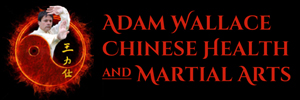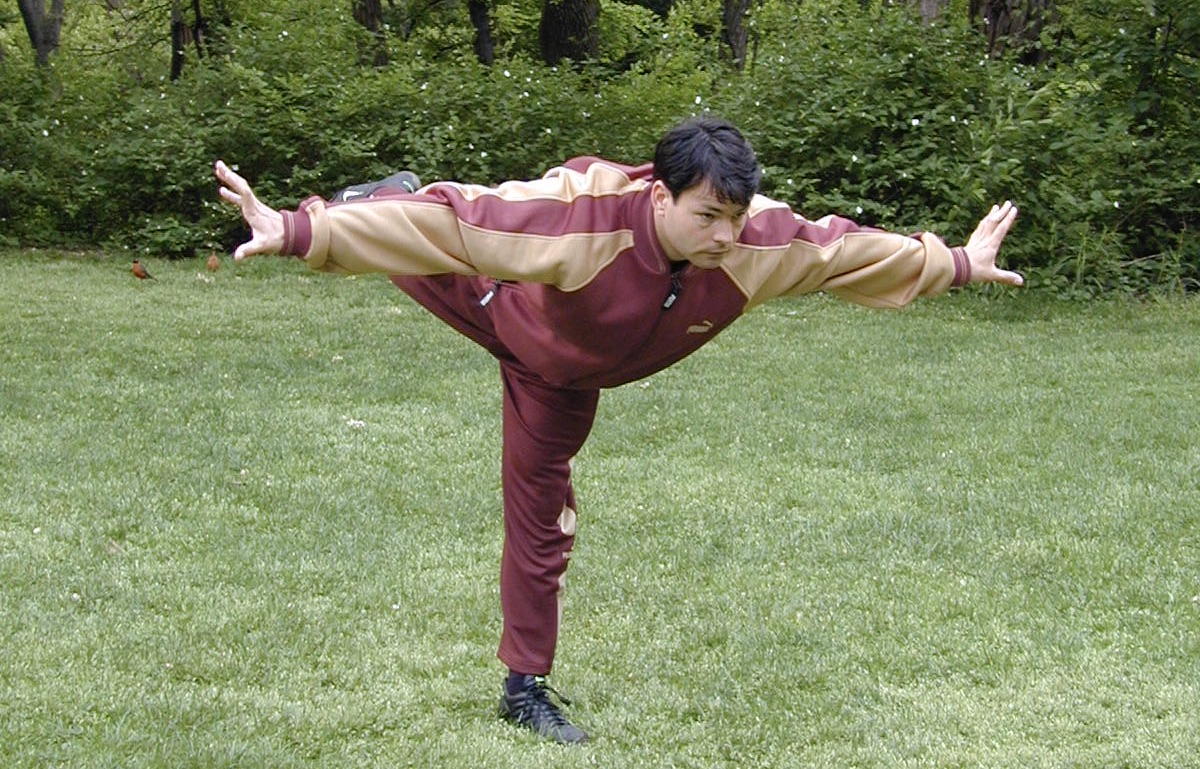If we stop to consider this question, we can gain great insight and self-knowledge, as well as access to the barometer of our health. Generally, we have been conditioned to answer, “Good” or “Fine”, as a knee-jerk/ cattle-prodded superficial response, without ever actually evaluating how we are really feeling at all.
Posing this question to students at the end of class, following meditation practice, helps reinforce the connection between mind, body, and Qi. Common answers range from, “Energized/ Refreshed/ Tingling” to “Calm/ Relaxed/ Peaceful/ Loose/ Comfortable” to “Clear/ Bright/ Alert/ Awake” to “Grounded/ Rooted/ Solid/ Centered/ Balanced” to “Light”, “Warm”, “Connected” and “Happy”. These phenomena vary person to person and can change depending on the time of day or season, and all relate to what is happening with Qi internally, during and following practice. Another frequent response is, “Better than when I first arrived at class”. Invariably, being with other healthy and positive people also brings up energy, which helps combat fatigue and, more importantly, the onset of illness. After work, people can feel tired, but if the work is not physical/ manual, and involves stress and sitting still for long periods during the day, and using up mental energy, simply returning home to eat and collapse, watching television, and then to bed, day-in/ day-out, only causes Qi to stagnate. This uses up the battery and our Prenatal Qi quickly, leading to fatigue, premature aging and early demise. So, gentle movement with regulated breathing and calm mind is the antidote.
Qigong is internal training, and Qi, as energy, relates to thoughts, emotions, and feelings too. So through experience you (should) come to know your own body, your Qi, and your mind. It is mindful training, compared to Western forms of exercise that are “mindless”, whereby adherents do not feel much internally, or come to know themselves at all. Toward the end of their lives they know themselves, and their bodies, no better than the formative years, having spent the majority of their time in an external and turbulent state of mind – occupied, distracted and stressed. Qi was discovered thousands of years ago by people that lived simply and naturally, in accord with Dao (or Nature). Qigong evolved as a ritual dance, created to generate Heat to dispel the Damp (caused by central China’s humid climate) within the body, and cure the variety of complaints, such as rheumatism, arthritis, muscle atrophy, and phlegm. The acupuncture channels were discovered not by randomly sticking pins into bodies, but through deep introspection and meditation. With the mind today now continually distracted by ADHD-inducing commercials and videos, with flashing pop-up ads, unnecessary new phone apps and rapidly-evolving technologies and trendy gadgets, constant monitoring and posting on Facebook, and Tweeting, texting, and video games, and multi-tasking, with no stillness, no peace, no contemplation in silence, only static, white-noise, and constant chatter, do you really think there is the remotest possibility that Qigong could have possibly been created in today’s world?
Today, many people are shocked and devastated to learn from their doctors, following a routine visit, that they are diagnosed terminally ill, with perhaps mere months to live. We go to the repair shop to have our cars and computers diagnosed and fixed, but no-one else really should know our bodies better than we should know our own! (This just goes to show how far we, as sentient beings, are removed from Dao.) The warning signs are always there, and we have our own computer (brain) already built-in and turned on. Perhaps a person had been feeling increasingly out-of-sorts (listless and lethargic) or experiencing pain, and aches, over a long time, and simply ignored the body, blocking it out, until the feeling came to be regarded as ‘normal’? Similarly, today, basic human instincts have become lost, and when it comes to injury and pain, no-one knows what they need intrinsically, or how to take care of themselves, by using natural, gentle movement and self-massage. The body tells us everything, but do we ever ‘Listen’ to it? Bruce Lee collapsed during filming Game of Death, many months before he passed away at age thirty-two. His body was telling him something, but after the doctor gave him a clean bill of health and told him he had the body of an eighteen year-old, he jumped right back into his intense physical regimen with renewed vigor. He should have taken time out. With internal training, this ‘listening’ ability should become second-nature. I say “should” because even some long-time students can fail to relax, and feel their bodies. Without feeling and awareness, the forms just become empty movements, with limited benefit.
Many of us tend to be ruled by our emotions, and sit back in the rollercoaster seat of soaring highs and abject lows, changing from elation and euphoria when things are going well in life, to depression to fear, anger, and worry when they’re not, and then back again. We need to remain consciously aware of the emotions, and know their affect on our Qi and internal organs. We must guard against these extremes, and practice being centered to minimize the toxic effect on our subtle body. Stress and bottled-up emotions, especially anger and hate, do untold damage to the body and immune system, and are often the root cause behind many diseases, including cancer, asthma, and multiple sclerosis, as mind and body are one, not separate. From early childhood many shut down their awareness of stress, and so, it becomes normal, then as adults they experience stress without even feeling it, or understanding it, as awareness has become disconnected from the consciousness.
All phenomena exert a positive (nurturing) or negative (toxic) effect on our minds, and consequently our Qi and body, so it is vital to be sensitive to how the foods we consume, the environments in which we live and operate, and the people we allow into our lives, all make us feel, as they affect us more profoundly than we may realize. Sometimes, abusive partners and vindictive bosses cause more damage to our health than pollution, poor diet and bad lifestyle habits combined, as they affect our mood and happiness, which directly impacts the immune system and Qi/ vitality. Wisdom is needed to recognize these negative influences, and then courage/ strength of character is needed to make the difficult decision to limit exposure or extricate oneself from them altogether. Bottling up the emotions leads to internal pressure, and with no respite, or release, this will lead to illness, as surely as night follows day.
Anxiety, depression, and stress are 21st Century epidemics. Sufferers attempt to kill the emotional pain, caused by these afflictions, through prescription medications with names like Prozac and Zoloft. Ironically, these medicines (Selective Serotonin Re-uptake Inhibitors), according to their own label warnings, can cause the very afflictions, including suicidal and homicidal urges that they are meant to be combating. The brain’s pain receptors are shut down, but so too is the emotional response and sensitivity to feel everything, so by numbing ourselves in this manner we are, in effect, shutting ourselves off to the human experience and fullness of life itself; there is no possibility of feeling pure joy and deep happiness without the ability to experience pain and suffering. Failing to feel fully with one’s senses intact is to go through life like a partial human being, incomplete, like a zombie, and this prevents us from ever fully developing the mind and compassion, or our full human potential. In all honesty, deepest spiritual attainment and our full human potential can never be achieved, in this lifetime, if our brain receptors are blocked in this manner. We need all our faculties and ability to experience all life has to offer or throws at us, in order to learn and grow. One of the goals of Qigong and internal martial arts is self-knowledge, self-improvement, and self-mastery. This process can be considered inner alchemy – changing coarse Qi and thoughts into refined Qi, Mind, and Spirit.
So, how do you feel at this precise moment in time? if you feel comfortable, warm, free of pain, clear-minded, with a peaceful heart, with vitality, then that is a fairly reliable indication that all is well, and that the internal body is existing in balance with Nature. If you feel out-of-sorts, lethargic or low, try going outdoors for just five minutes! Look at the sky, and breathe the fresh, cool air deeply into your lungs, and let it out with a calm, clear mind, walk a little, and move your body in a relaxed, gentle manner (stretching, reaching up, and bending forwards), then ask yourself this very same question again. You have to feel somewhat different, as you have changed your situation and your Qi and Spirit. If you are feeling pain, then there should be, at the very least, some light relief. If you are feeling stale, then you should feel refreshed and clean inside. And, if you are feeling emotionally imbalanced you should feel a little calmer and more centered afterwards. If you can discern that the result is quantifiably a positive improvement, then why not do more, and more frequently?
When you practice the right internal training and meditation, with the right attitude, the feeling is exhilarating, and blissful – the closest feeling to ‘heaven’ that is possible. And, if you happen to be ill, no matter how bad you may feel, or how serious the illness, if you are able to get that good feeling from your practice, then the Qi will remain with you and work internally to replace the sick, stagnant, turbid Qi, for hours, which means that if you continue to practice twice a day at least (gathering Yang Qi in the morning and Yin Qi in the evening) there is real potential for healing your condition and feeling good all the time!
– Adam Wallace

